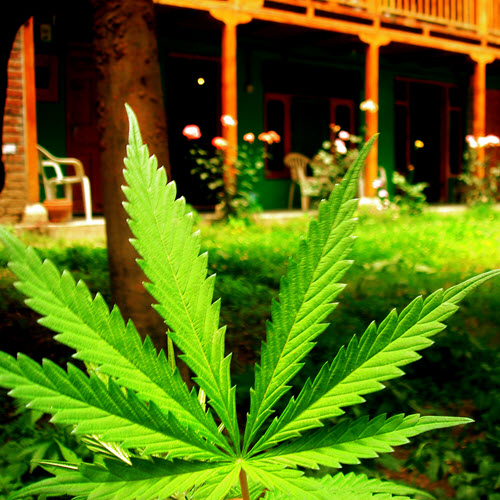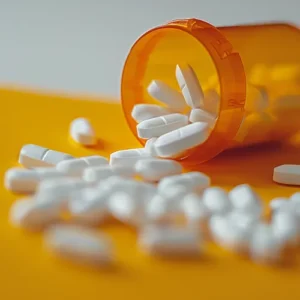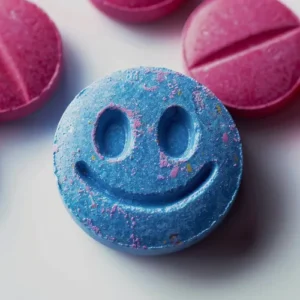Cannabis contains approximately 60 different psychoactive chemicals called cannabinoids. Of these THC or tetrahydrocannabinol, is the most important one. THC is the chemical responsible for most of the psychological effects of cannabis. An individual’s behaviour is changed when THC binds to the receptors of nerve cells in certain parts of the brain.
THC affects the areas of the brain that are most commonly linked to memory, time perception, thinking, coordination and pleasure. The stimulation of THC causes dopamine to be released by the brain, creating euphoria. At the same time, the hippocampus, the part of the brain charged with creating new memories, is also affected by the interference of THC.
Many people experience a pleasurable state of relaxation when using cannabis. THC works to increase the sensory experiences of taste, sound and colour.
The effects of THC normally last for a couple of hours, normally starting within 10 to 30 minutes of ingestion.
Hallucinations, changed thinking and delusions can all be caused by THC. Even when the “high” has subsided, a psychomotor impairment may still occur.
These effects of cannabis make it a popular drug. In fact, Cannabis is the most widely used illegal drug of abuse in the UK. However, the effects of the drug on long-term mental are a concern to many.
There is increasing evidence that individuals with serious mental illnesses, such as depression and psychosis, are more likely to be cannabis users or to have tried it for extended periods of time in the past.
THC and impaired motor skills
Driving under the influence of THC is a growing problem. After alcohol, THC is the second-most commonly used psychoactive substance that is found in drivers. This type of activity is referred to a “drug driving” and is highly dangerous as THC severely impairs motor skills. It is generally accepted that cannabis may impair driving or similar tasks for approximately three hours after consumption.
How much THC is present in Cannabis?
The amount of THC present in Cannabis will affect its potency. When Cannabis is cultivated as hemp, the amount of THC present is minimal, as little as less than 1 per cent. Naturally in the cannabis plant itself, the amount of THC ranges from 0.5–3%. In resin, the most commonly seen form of the drug in the UK, it is generally accepted that THC levels range from 5%-15%.
As stronger strains of cannabis have developed, the levels of THC have increased. A type of cannabis known as “skunk”, for example, has been recorded as having 2-3 times more THC than standard cannabis.
The effects of THC on the developing brain
Recent research has shown that regular cannabis use by teenagers can have long-lasting effects on brain development and mental health. The human brain continues to develop into the early 20s, and exposure to THC during this critical period can alter brain structure and function.
Studies using brain imaging have found differences in the volume and shape of certain brain regions between teens who use cannabis regularly and those who do not. Cannabis use in adolescence has been linked to increased risk for psychiatric disorders like depression, anxiety and psychosis later in life.
The effects seem to depend on factors like how much and how often cannabis is used. Teens who use cannabis daily or started at a younger age seem to be most affected. More research is still needed, but experts recommend delaying cannabis use at least until the late teens when brain development starts slowing down.
Medical uses of THC
In addition to its recreational use, THC has shown potential medical benefits. THC can help treat nausea and vomiting, particularly in cancer patients undergoing chemotherapy. Synthetic THC medications like dronabinol (Marinol) and nabilone (Cesamet) are FDA-approved for this purpose.
THC may also improve appetite and prevent weight loss in people with HIV/AIDS. More research is being done on THC’s ability to reduce pain, inflammation and muscle control problems in multiple sclerosis.
However, THC medications have downsides like dizziness, poor concentration and drowsiness. More research is underway to develop cannabinoid-based medications with fewer side effects for managing chronic pain, epilepsy, PTSD and other conditions.
How THC tolerance develops
With regular cannabis use over time, people can develop tolerance to the effects of THC. This means they need increasingly larger doses to get the same psychoactive effects.
Studies show that THC tolerance develops rapidly during daily cannabis administration. People who use cannabis daily may develop complete tolerance after just a few days.
THC tolerance is thought to result from changes in cannabinoid receptors in the brain. When THC binds these receptors, they become less responsive. The number of receptors also decreases with frequent cannabis exposure.
Tolerance goes away after stopping cannabis use for a few days. But heavy users may not see full sensitivity restored for several weeks of abstinence. Understanding the mechanisms of THC tolerance can help guide medical cannabis dosing.
Zoom Testing is a leading supplier of Drug Test Kits.





